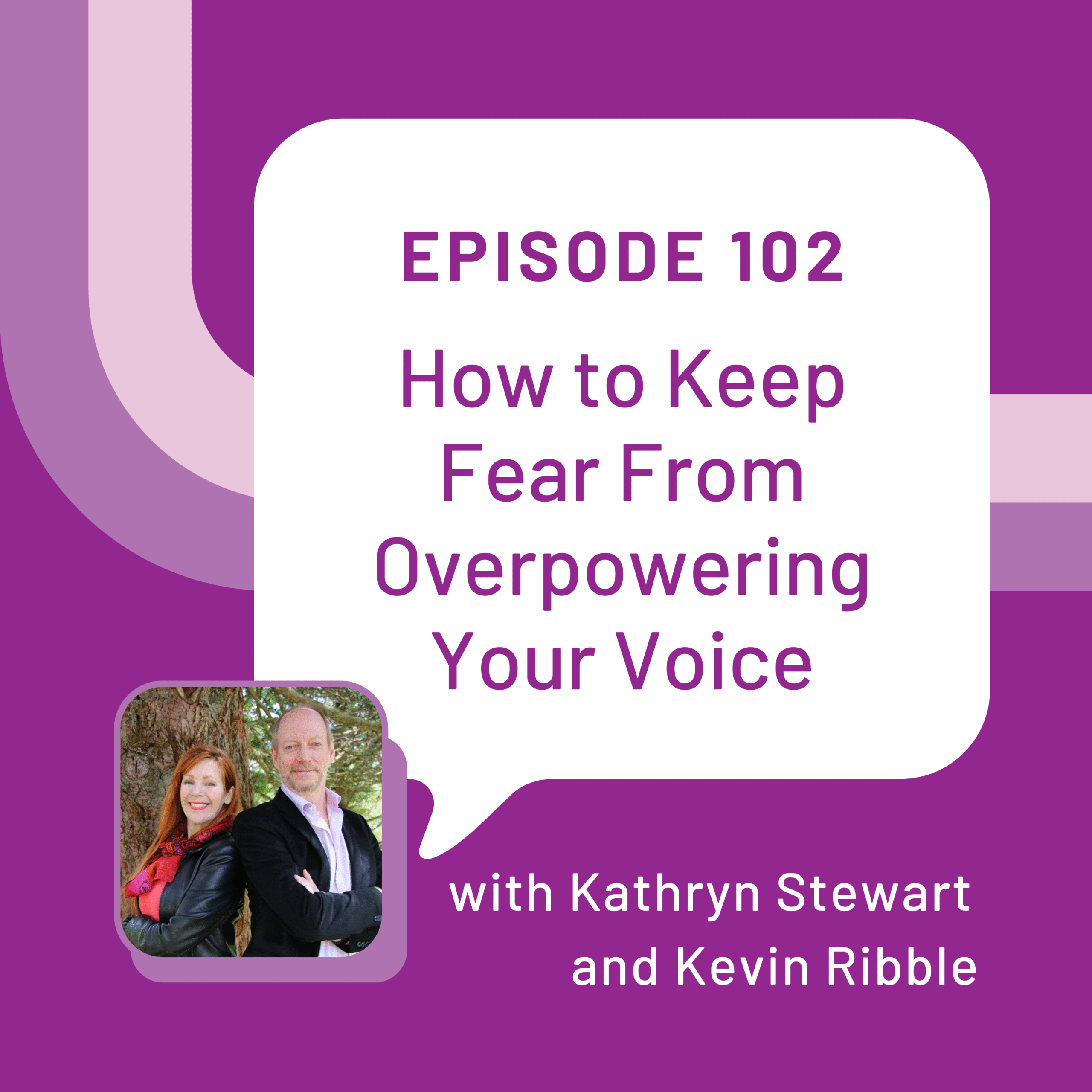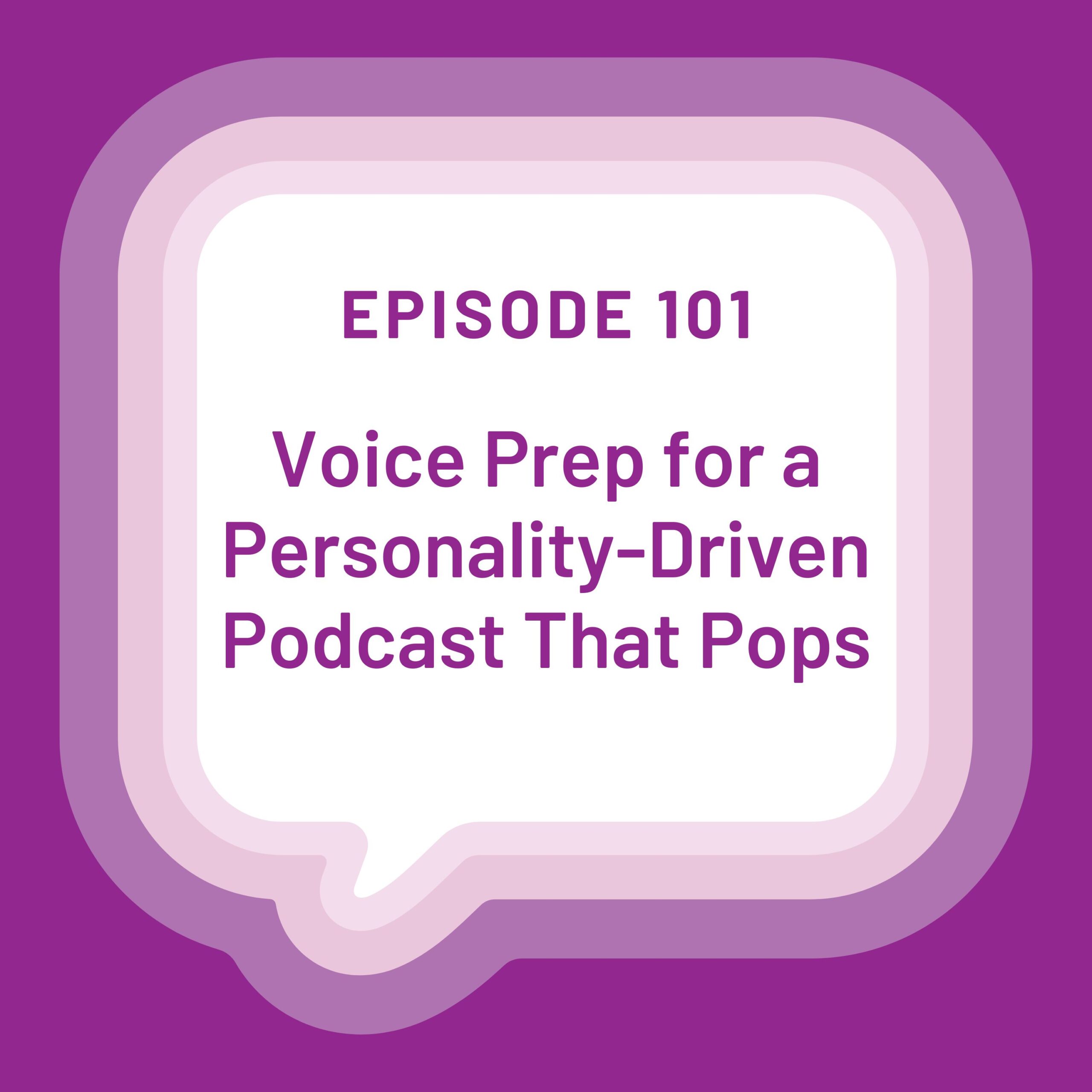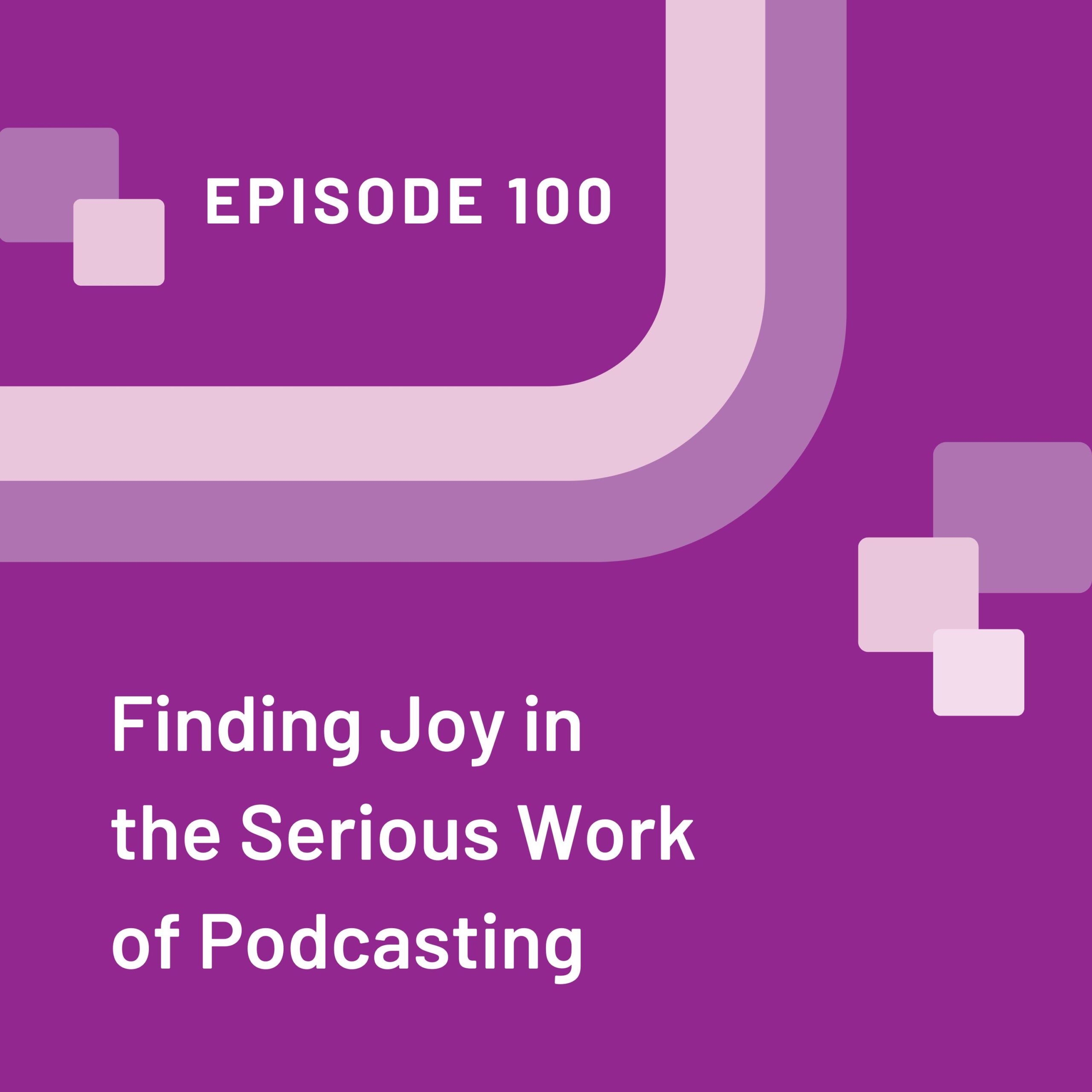As a podcaster, we don’t usually get to have training on how to be a podcaster. A lot of the time we do this based on our passion. We want to create something to spread our message. And podcasting is relatively an easy platform to get your message out there. As opposed to traditional media such as TV, radio, even print, it can be harder to get your message out through those means. So with podcasting, it’s more of an independent platform and it’s a little bit of the wild wild west still. I mean, it’s been around for quite some time. It’s still relatively new, and some of the strategies that we use are borrowed from traditional media.
A lot of the comparisons are to radio because the medium of audio is so similar, and that’s where I came in. I have a radio background. I went to school for it at BCIT and what I actually found the other day was some of my old notebooks. I had a three-ring binder that I left at my parents’ house. I had no idea it was still there. I thought I took everything with me or recycled everything. But no, my brother was cleaning out my parents’ house and found this. And he took a picture of it, and he said, do you want me to throw it out because it’s so old? And I’m like, Whoa! Not that one, actually. It was my old Interviewing for Radio and TV binder from 1998. That’ll just tell you where I am in the generations of broadcasters. So when I finally got a hold of it and looked through it, not only did it flood back all the memories, but it made me realize that even though I learnt these tips, techniques, tricks and had this experience back in 1998, a lot of it is still very true and I use most of the stuff like the back of my hand. I had no idea it was so ingrained into my DNA already. I guess that’s what happens to you after going through school for radio and then have 20 years of experience in the industry. And the timing of finding this binder was pretty impeccable, actually. Some of my clients were actually asking about interview techniques, and I have been giving pointers, tips and tricks here and there to each of my clients when they needed it. So I thought, what a better way to tell you about some of the bad interviewing habits than right here on the podcast.
Now, as someone new to interviewing, I usually say, just think of this as a conversation. And that’s what most podcasters do, they think this is a conversation. We’re just going to shoot the shit and chat back and forth, and it will sound great. Okay. Yes, it can. Not every host is as charismatic to be able to pull this off. However, I think if all podcasters had a good baseline on how to do a proper interview, each episode will actually sound that much better, and you’ll have less editing to do.
Bad Habit #1
So one of the big things that most hosts will not do is interrupt their guests. They believe they’re being respectful to the guests and their time. But I do have to say there are so many podcasts that I listen to, so many different episodes where the guest just rambles on or they go on a tangent. Have you ever heard an episode like that too? Where someone is talking about something and then they ramble off about something else? And then they’re like, what was the question again? I know, it happens. That’s because the host goes into the recording thinking this is just a conversation. But if you do focus on the fact that this is an interview, it will be published to the world, you will have to do some show prep first. And part of that show prep is knowing that you can still be respectful to your guest and interrupt them. Yeah, I said it. You, as the host, can interrupt your guest. You are the host of the show. You are in the driver’s seat. So what you want to do is actually find a nice spot to interject. Interjecting is not the same as interrupting. You will not be walking all over the person and telling them to stop talking. You are just interjecting or prompting to get them to answer in a more specific way. We’ll get to more prompting later.
Bad Habit #2
So let’s get right into the other bad interviewing habits. Close-ended questions. Ah, yes! Do. Did. And can. If you start off your questions with one of those three words, you will most likely get a yes or no answer. And if your guest is not wanting to elaborate? It will just end there. Yes. Mm-hmm. Yep. And then that awkward silence. An example could be, do you believe it’s hard to multitask in a virtual world? Did you go to bed early? Can we talk more about how you felt? Yeah. Uh uh, no. Those are the type of answers you could get. I mean, we’re not lawyers. We’re trying to have a conversation. We’re not trying to just get our guests to say yes or no.
Bad Habit #3
The next bad interviewing habit actually leaving out the question altogether. This bad habit comes from how we want our guests to react to our statement. But if we don’t ask a question, guests can respond with a, yeah or totally. Uh-huh. Yeah, I agree. And then leave it at that. So then if you just reacted with a statement of, so then you stopped going to the store. Uh-huh. Your guest just nods at you, yeah. Then what? Your conversation is not going anywhere. Now I must note, leaving out the question really means that you are just stating a statement. Sometimes you can leave out the question if you are asking for a direct answer or, like, if you want them to give you a grand tour or description of something and you’re asking for a bigger example. Such as you can say, tell me a time when… or paint me a picture about… describe what you saw when, etc. These are prompts for your guests. Like I said, prompts are good.
Bad Habit #4
The last bad interviewing habit I’ll share today is asking two or more questions at once. Now I’m bad for this too as well, especially when I have the question I want to ask, but then my brain takes control and I end up rephrasing it with a or, this, this and this is what I meant. So for example, I might say, how did you control that excitement? Or did you discipline yourself? With that question, you’re confusing your guest. Did you want them to talk about the excitement or how they have self-discipline? They will process that question and quickly pick and choose what they want to say and then just ignore everything else. So you may not get the answer you’re looking for when you’re asking two or more questions at once.
Bad Habit #5 (Bonus)
This also is very similar to another bad interviewing habit, so I’m just going to throw this one in as a bonus – an overloaded question. So when you wanted to start podcasting, how much overwhelm was there in learning about the tech with the mics, recording, editing your show? As the guest, with that question, I’d wonder, well, did you want me to talk about the mics or was that recording or, well I know editing was tough for me, so maybe I’ll talk about editing. Which is it? I mean, I use the word overwhelm on that question. But really, that whole question was overloaded and overwhelming itself. So like asking two or more questions at once with an overloaded question, the guest will pick and choose what they want to say and then just leave everything else out. So now that we’ve talked about all the bad habits, what about some good habits, what should we do instead?
Good Habit #1
Number one, be neutral and use bland words. I know it sounds boring, right? Especially if you have a very colourful vocabulary. Guests will have a better understanding of the question and what you want to be answered if they don’t have to figure out what you actually mean first. You’ll actually get a more interesting answer if you use neutral or bland words.
Good Habit #2
Number two, keep it short and simple. I’m not saying all your responses have to be short, but the question itself should be short and simple. Feel free to react and comment to the guest’s last thoughts and then follow up with a short, concise question. So like before, when I was talking about an overloaded question, your question might make your guests decipher what it is you’re actually looking for if there’s just too much going on.
Good Habit #3
And then the last thing of what you want to do during an interview is really the number one thing. It’s to use open-ended questions. Now, one of the first bad habits I talked about was using close-ended questions. So this will be the opposite of that. Instead of the do, did, can, you want to use what, how and why. Those will be your best friends. Those words are magic for your guests to explain and explore, diving deeper into their answer, usually providing you with a really awesome story to share. If you ask a ‘what’ question, they will provide an answer with an action or description. If you ask a ‘how’ question, you’ll definitely get a full description. A ‘why’ question will then prompt your guest to provide a full explanation of why it is they did what they did, or felt what they felt, or saw what they saw.
Good Habit #4
And earlier throughout this whole episode, I was touching on prompts. Prompts are definitely a good interviewing habit if you haven’t figured that one out already. Mark that down – prompts are a good interviewing habit. You can interject, and this will give you, as the host, a way for you to provide a follow-up question and to get your guest to describe what it is that you want them to say. So if you ask your guest a question and you end up getting a short answer, a prompt can either save the interview or it will get the guest to talk more. If you initially ended up asking a yes or no question, I know it happens sometimes, you might have accidentally asked, can you tell me more about the issue? They might answer with, yes! We ended up discussing the topic with lots of people and tried to get our message out there. And then they’ll stop it at that. Well, that answer doesn’t really provide any substance. So what you want to do here is prompt them with a follow-up question, such as: who did you talk to? Or, what did you do to get your message out there? Prompts are great at rescuing what you really wanted your guest to answer. You are in the driver’s seat, as I said at the beginning of the show. You have control over the conversation. Don’t ever think that the interview is going nowhere, because if that’s true, it’s probably because you do not have enough prompts. So I’m not saying that you need to prep each show with the same generic questions. That’s great to have. But you need to do your research before the guest comes on so then you have a bigger picture of what you want them to say and have those follow-up questions ready. And again, those questions can just be bullet points. They don’t actually have to be the full question, but just have it in the back of your mind that one of the good habits is always asking with open-ended questions – what, how and why.
So what was your biggest takeaway on this episode? Did you catch that? I used a ‘what.’ Let me know. Leave me a little voice note here on my website. Look for the purple button that says, “Send Voicemail”. So until the next episode, be neutral and use bland words as much as you can. Remember, it’s not what you say, it’s how you say it to make it more engaging and fun.



